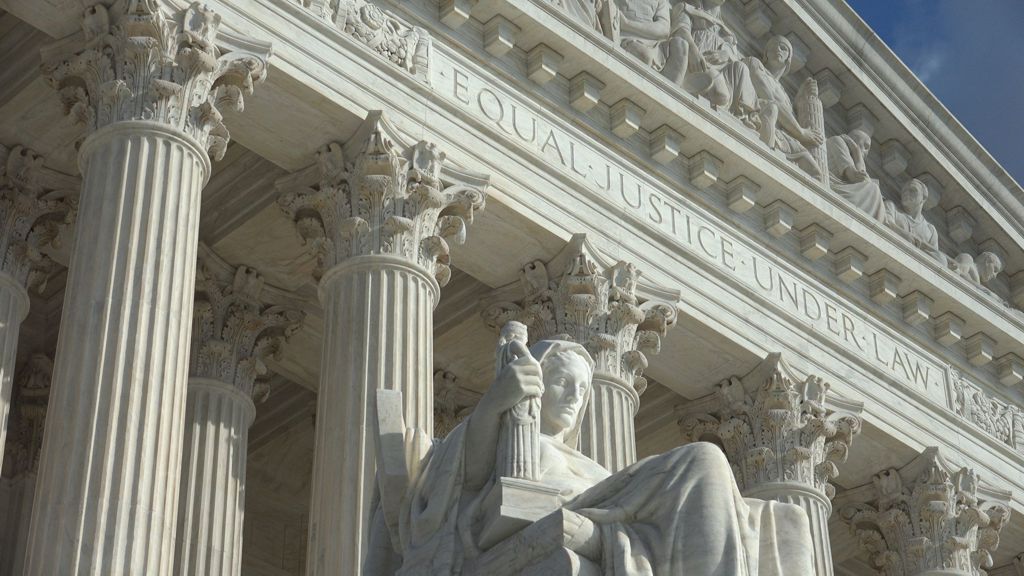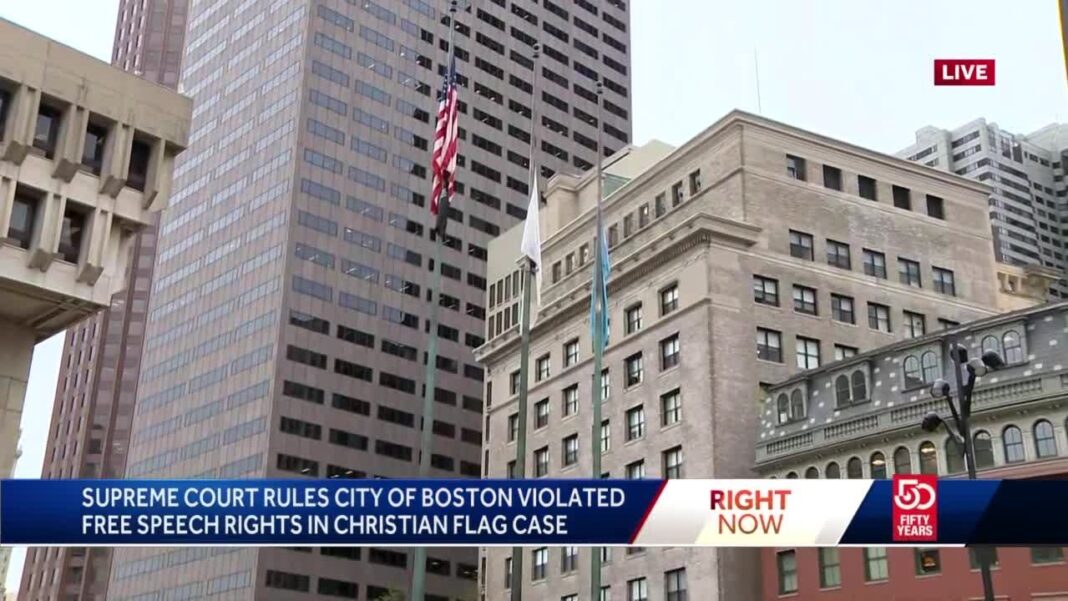President Biden has been evading several court orders to implement the nation’s “Remain in Mexico” policy without consequence other than Republicans complaining about it on cable talk programs. Biden’s policy decisions result in an open southern border that allows millions of immigrants to enter our country illegally, including drug smugglers, sex traffickers, and terrorists. The dispute is now before the U.S. Supreme Court. However, the potentially traumatic constitutional part of the controversy is – what if the Supreme Court upholds the “Remain in Mexico” policy and the Biden administration refuses to enforce it?
Since the court is without enforcement authority and Congress lacks the courage to follow the Constitution, the simple answer maybe there will be no political consequence to Biden until the 2024 election. But what about the many Americans injured by the millions of illegal immigrants trespassing on farms causing damage to land and animals, and the assaults and even murders of Americans, not to mention the costs of migrant care imposed on hundreds of small towns?
A similar situation occurred in 1832 when President Andrew Jackson was outraged over a Supreme Court decision striking down a Georgia law regulating the entry of white people on Native American lands. Jackson stated – “John Marshall has made the decision; now let him enforce it.” Jackson viewed the Supreme Court’s decision as interfering with his power to remove Indians from their land. Jackson’s contempt for the rule of law eventually led to the horrifying Trail of Tears.
Today, another conflict over the regulation of people is before the Supreme Court. The case, Biden v. Texas, addresses whether the Biden administration must enforce the Trump era “Remain in Mexico” policy that requires non-Mexican migrants to wait in Mexico until the U.S. can adjudicate their asylum claims.
On April 26, 2022, Texas argued that under the clear language of the immigration statute, the Biden administration has only three options for dealing with illegal immigrants: (1) decide on a case-by-case basis to allow certain immigrants to stay since they offer benefits to the U.S.; (2) return the immigrant to Mexico, or (3) place the immigrant in U.S. detention centers.
The Biden administration argues it is impossible to detain the millions of illegal immigrants since Congress only provided funding to detain 34,000 immigrants. Yet, Biden’s 2023 budget seeks to reduce that number by 25%. Moreover, since the “Return to Mexico” policy involves foreign policy with another country, Biden asserts the court cannot interfere with the President’s power over foreign affairs. Operating within these restrictions, the administration opted to release most immigrants into the U.S. Unfortunately, Congress restricted its authority to case-by-case determinations. The administration has no statutory power to release immigrants en masse.
An open southern border seems to be as crucial to president Biden as acquiring Indian lands was to president Jackson. What happens if the Supreme Court orders the Biden administration to enforce the “Remain in Mexico” policy and Biden tells the court, “You made the decision; now you enforce it?”
There are very few workable options to make Biden enforce the law.
Congress could appropriate hundreds of billions of dollars to detain the millions of illegal immigrants until their asylum dates. Is it unlikely that Congress would appropriate such amounts since the Biden administration has refused to complete the most straightforward task, building the border wall.
A Republican House of Representatives in 2023 could impeach Biden; however, it is unlikely the Senate will have 67 votes to convict him. Besides being a footnote in history, the impeachment will not result in any serious border enforcement.
Congress could cut off funds to the Department of Homeland Security (“DHS”). Still, Biden would veto such an effort, and it is unlikely that Congress can override the President’s veto.
Conversely, one House of Congress could refuse to appropriate any funds for DHS operations. This situation is unlikely since it would eliminate all border protection.
A real politick option would be for one House of Congress to refuse to provide any funding for an agency desperately desired by Biden’s allies, such as the Department of Education. Withholding these funds might bring the Biden administration to the negotiating table to ensure his most significant contributor, the teachers union, continues its control over American education. It is unlikely however; the Republicans have the courage to enter such a high stakes negotiation.
A more practical option might be for citizens injured by the administration’s actions to seek compensation under section1985 (c) of the Civil Rights Act of 1871. They would allege that the president and the Border Patrol conspired to act illegally and such conduct deprived them of their right to equal protection of the law.
Federal immigration law requires the President and the Border Patrol to prevent persons and goods from illegally entering the U.S. and harming the nation’s security. Since the start of the Biden administration, citizens have complained of the harm caused by its failure to secure the border, a violation of Biden’s constitutional duty to “Take Care” that the laws be faithfully executed.
The federal government’s defenses of sovereign immunity, (the government can do no wrong), and that it operates as one entity so there cannot be a conspiracy, usually prevail. In the civil rights context,the situation is different when government deprives citizens of their contitutional rights. Simply, the courts have recognized some limits on immunity from government corruption.
In a civil rights context, “… when execution of a government’s policy or custom, whether the policy is made by lawmakers or by those whose edicts or acts may fairly be said to represent official policy, inflicts the injury,” the government as an entity is responsible for the actions. Suppose Biden refuses to obey the court’s order, and the Border Patrol follows Biden’s orders. In that case, the two entities are conspiring to violate U.S. policy. The conspiracy deprives those harmed of their right to the equal protection of the law; e.g., intentionally allowing into the U.S. drug dealers, sex traffickers and terrorists who harm Americans.
For far too long, citizens have lacked remedies when injured by the joint illegal conduct of the Executive and the agencies following its directive. Other examples help illustrate this point: the IRS targeting the tax returns of conservative groups and the FBI filing false FISA applications to spy on citizens. The general remedy of injunctive relief is usually a day late and of no compensatory value. Federal apologies for violating the civil rights of citizens are cheap. Seeking monetary damages under the Civil Rights laws against the federal agencies that intentionally implement illegal government policy may be the best mechanism for citizens to uncover the scope of any unlawful activity and be compensated for their injury.






